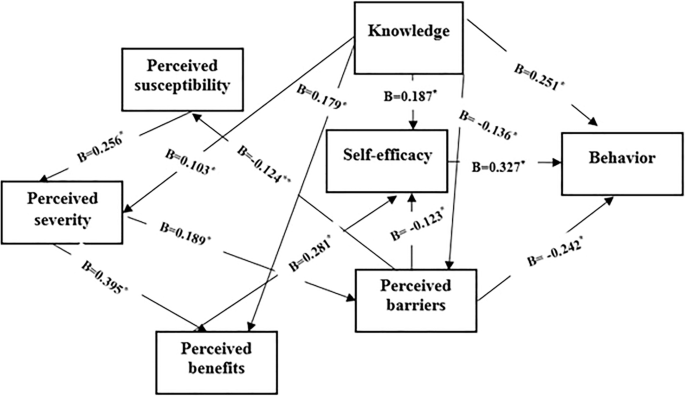By Dr Sakshi Khullar
As we celebrate World Breastfeeding Week from August 1 to 7, it is important to recognize the vital role breastfeeding plays in the health and well-being of infants and mothers around the world. Breastfeeding is one of the most effective ways to ensure child health and survival. According to the World Health Organization, breastfeeding within the first hour of birth can reduce neonatal mortality by 22 per cent. Further, exclusive breastfeeding for the first six months of life can decrease the risk of diarrhoea and pneumonia, two leading causes of infant mortality. Benefits include essential nutrients, antibodies and immune support that lead to better growth and development of new born babies.
Studies have also revealed that breast-fed babies grow to be healthier adults and have higher resilience in fighting diseases. Apart from the various health benefits, breastfeeding invokes a lifetime bond between mother and a child. One of the underrated benefits of breastfeeding is the positive impact on maternal health, which includes postpartum weight loss, reduced risk of breast and ovarian cancer.
But sadly, despite the proven and known benefits of breastfeeding, its practice and prevalence has seen a declining trend globally. This is despite the advocacy and awareness efforts made by the medical fraternity and global health agencies. In India, the situation is quite dire. According to the National Family Health Survey, only about 41.5% of infants under six months are exclusively breastfed. As per World Breastfeeding Trends Initiative (WBTi), India’s global rank is 79th when it comes to breastfeeding for the first six months of child and ranks lowest in the South Asian region. A joint study by UNICEF and WHO had ranked India 56th in early initiation of breastfeeding amongst 76 countries it surveyed. The statistic is concerning, as breastfeeding is crucial for the health and development of infants.
This low breastfeeding culture is largely due to the fact that India continues to face significant challenges in promoting breastfeeding. There remain many barriers, from economic to social, for naturalization and adoption of breastfeeding. Some of the major barriers that India needs to overcome to foster a healthy breastfeeding culture include:
- Low awareness and education: Lack of knowledge regarding the benefits of exclusive breastfeeding and its importance is prevalent. Young mothers (< 24 years) today seem less likely to breastfeed their infants exclusively up to 6 months. This can be partly attributed to the lack of awareness about the benefits and misconceptions regarding EBF.
- Social stigma and lack of public facilities: Mothers frequently encounter inconvenience and stigma when breastfeeding in public places. There is also a notable lack of designated breastfeeding areas in public spaces. This discomfort can deter mothers from breastfeeding when needed.
- Socio-economic factors: Poverty and low educational levels can restrict access to information and resources necessary for successful breastfeeding. Families facing economic hardships may prioritize immediate nutritional needs over long-term health benefits.
- Insufficient family support: Support from family members, especially partners and elders, is crucial for breastfeeding success. Many women lack encouragement or assistance from their families, which can lead to feelings of isolation and stress. Families are often more interfering than supportive of breastfeeding due to their thoughts and views which are most often unscientific and dogmatic.
- The gap between policy and practice: The Maternity Benefit Act, 1961 entitles women in the formal workforce to 26 weeks of fully paid maternity leave. However, this act does not cover a majority of women engaged in informal employment, where employer-employee relationship is difficult to establish. The well-intended Pradhan Mantri Matru Vandana Yojana (PMMVY), a scheme under the National Food Security Act, provides a conditional cash transfer to pregnant and lactating mothers as partial compensation for wage-loss during childbirth and initial months of breastfeeding, it remains inaccessible to most women due to ignorance.
Addressing the Challenges:
To address these challenges, India needs to prioritize breastfeeding initiatives, provide better policy and cultural support for breastfeeding. It is essential for employers to create accommodating spaces and policies that recognize the unique needs of breastfeeding mothers, ensuring that all children receive the best start in life.
Moreover, we must address cultural gaps, particularly in Indian households, where non-scientific superstitions and practices can influence breastfeeding decisions. By promoting evidence-based practices and encouraging open conversations, we can empower families to prioritize optimal infant nutrition. Together, let us advocate for a culture that embraces both tradition and science, ensuring every child has the opportunity for a healthy start.”
The crucial role of lactation counselling:
Counselling on breastfeeding is a proven, cost-effective intervention that can help ensure mothers have the support they need to reach their breastfeeding goals. It involves providing support for pregnant women and mothers to establish the knowledge, skills, and confidence needed to breastfeed and respond to challenges. However, coverage rates remain unacceptably low across most low- and middle-income countries.
It is quite clear that much more needs to be done to support breastfeeding mothers. By providing resources and support, it can be ensured that all mothers have the opportunity to breastfeed their infants, regardless of their situation. World Breastfeeding Week is significant in raising awareness about the challenges faced by breastfeeding mothers, including societal stigmas, workplace support, and healthcare accessibility. By advocating for supportive environments and policies that protect and promote breastfeeding, the week encourages communities to take active steps towards creating breastfeeding-friendly spaces. As lactation experts and advocates, we are dedicated to fostering supportive environments that empower mothers to breastfeed comfortably and confidently, as the theme for this year is ‘closing the gap’.
(The author is HOD-Lactation Sciences Manipal Hospital Dwarka, Academics & Research Coordinator- Manipal Hospitals – Dwarka. Views expressed are personal and do not reflect the official position or policy of the FinancialExpress.com.)
link











More Stories
Like Mother, Like Nurse: Family Legacy of Healthcare
Travel and Breastfeeding | Yellow Book
Pregnant Women Are Losing Access to Care, Formula And Shelter Because of Elon Musk and Donald Trump